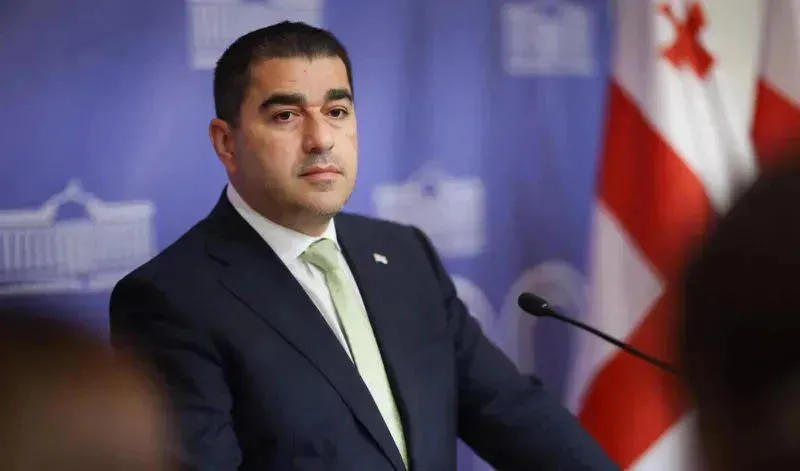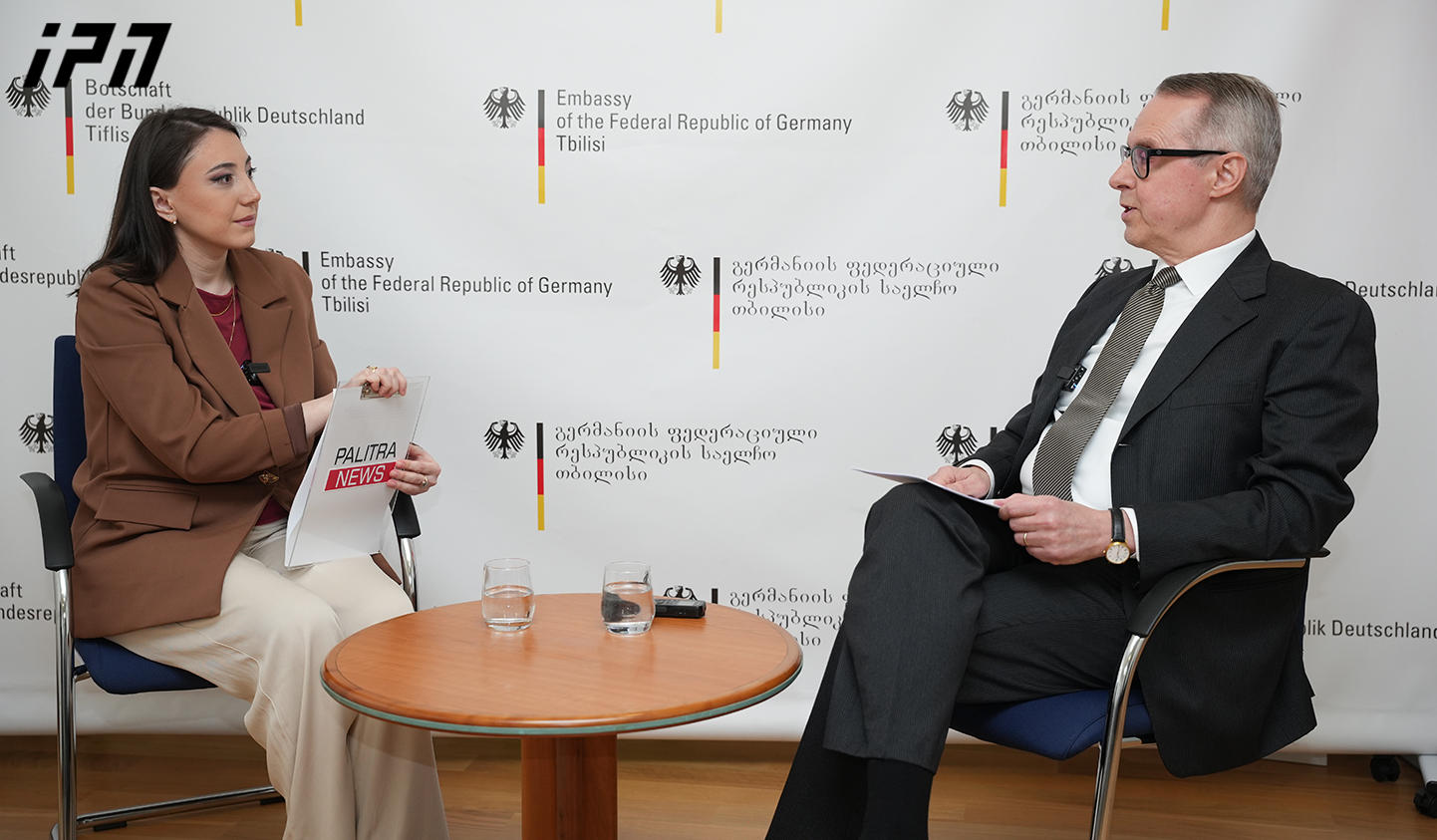Shalva Papuashvili to Pawel Herczynski: It is deeply disappointing that, even after the numerous public requests from the Georgian authorities, the EU Mission avoids to publicly distance itself from hatred and violence, from the groups funded from the EU

It is deeply disappointing that, even after the numerous public requests from the Georgian authorities, including my recent letter to You, the EU Mission avoids to publicly distance itself from hatred and violence, from the groups funded from the EU, - reads a letter addressed to the EU Ambassador to Georgia, Pawel Herczynski, by the Speaker of the Georgian Parliament, Shalva Papuashvili.
Shalva Papuashvili posted the letter on Facebook and explained that a few days ago he addressed a repeated letter to the EU Ambassador to Georgia, Pawel Herczynski, in which he once again drew attention to the disturbing situation when the name and funding of the EU are used for the purposes of hatred, violence and propaganda. According to Shalva Papuashvili, he addressed the diplomat on May 30 of this year.
“I am writing to express my disappointment about the absence of public condemnation from the EU Mission in Georgia of the continued smear campaign and aggressive assaults against the members of the Georgian Parliament and Government, from the individuals funded by the EU and the member countries. It is regrettable that the EU Mission’s inaction towards the persons and organizations that receive the EU funding, yet act against the European values, creates a milieu that is a fertile ground for hatred, violence, and political polarization.
It is deeply disappointing that, even after the numerous public requests from the Georgian authorities, including my recent letter to You, the EU Mission avoids to publicly distance itself from hatred and violence, from the groups funded from the EU. As I pointed out in my previous letter, the experience shows us that leaving such actions without proper reaction from the side of the funders enables certain space of interpretation by those groups as a green light for further violent actions, creating a false perception for them that hatred and violence can be justified in the name of the ‘European values’. Moreover, it is alarming that instead of condemning hatred, violence, and propaganda, we hear supportive statements towards those groups who are organizers of hatred, violence, and propaganda.
My caution that inaction would be perceived as a green light became vindicated soon. We have seen publicly how several invited guests, who are known to be beneficiaries of European funding, attacked a journalist on the 9th of May event dedicated to the Europe Day, organized by the EU Mission in Georgia. Regrettably, even then, we have not heard any kind of public condemnation of this incident. On the 17th of May, Member of Parliament Mariam Lashkhi was attacked and verbally abused, in presence of her minor children, in the name of ‘European values’, by the same individuals towards whom various European actors had previously expressed their solidarity. On the 22nd of May, the same ‘European values’ were used to justify verbal assault and threats against MP Irakli Zarkua by two individuals who are also known to be beneficiaries of European funding.
In my previous letter, I articulated the dangers of the refusal to publicly and clearly condemn such radical actions, not only for political polarization but also for Georgian democracy overall. Now we see, already, that the groups, encouraged by such silence, have approached the point of no return, beyond which lies extremism. In the last few weeks, we observe that the EU-funded NGOs have started rejecting the legitimacy of the democratically elected authorities of Georgia, embedding, with their statements and documents, such term as ‘illegitimate’ and ‘self-proclaimed’ Parliament and Government. Calling the Parliament, elected by the people, as ‘illegitimate’ and non-recognition of democratic institutions is the rejection of democracy itself. The coordinated nature of this campaign demonstrates that these statements are purposeful attempts to create the ideological basis for the change of the legitimate government with undemocratic methods. It is clear that this is not freedom of expression but represents extremism, by any democratic standard (with this letter, I am enclosing the material depicting these worrisome developments).
Being a responsible donor is not an option but an international-legal obligation, which is warranted by the ‘Paris Declaration on Aid Effectiveness”, violation of which is also the violation of the international rules-based order. Preventing the use of the donors’ funding for extremism is the main component of this obligation.
It is regrettable that this is not the first time that my precautions were not taken into consideration. We witnessed that aid, including European aid, has been used for undemocratic purposes. This brings to memory the case of the NGO ‘Shame Movement’s’ campaign ‘I Threw It’, which was funded from the European Endowment for Democracy (EED), and which was justifying the throwing of the Molotov cocktails as a legitimate means of protest. In 2023, this first ever known use of the Molotov cocktail in the history of Georgia did not meet proper condemnation. To the contrary, some romanticized this act, which led to the use of tens of the Molotov cocktails and other explosives against the people and the buildings in the following year. It is hard to ignore the causal relationship in this escalation.
The essence of the European Union, as a peace project, is not only in avoiding the war among the member states, but also in creating the opportunities for the development of societies in peaceful environment, free of disinformation, hysteria, and violence. In contrast, funding of hatred, violence, and propaganda is the rejection of the EU’s core values. It is time for some EU actors, concerned with Georgia, to re-align their actions with the European values. This is the basic test they still have to pass”, reads the letter.
